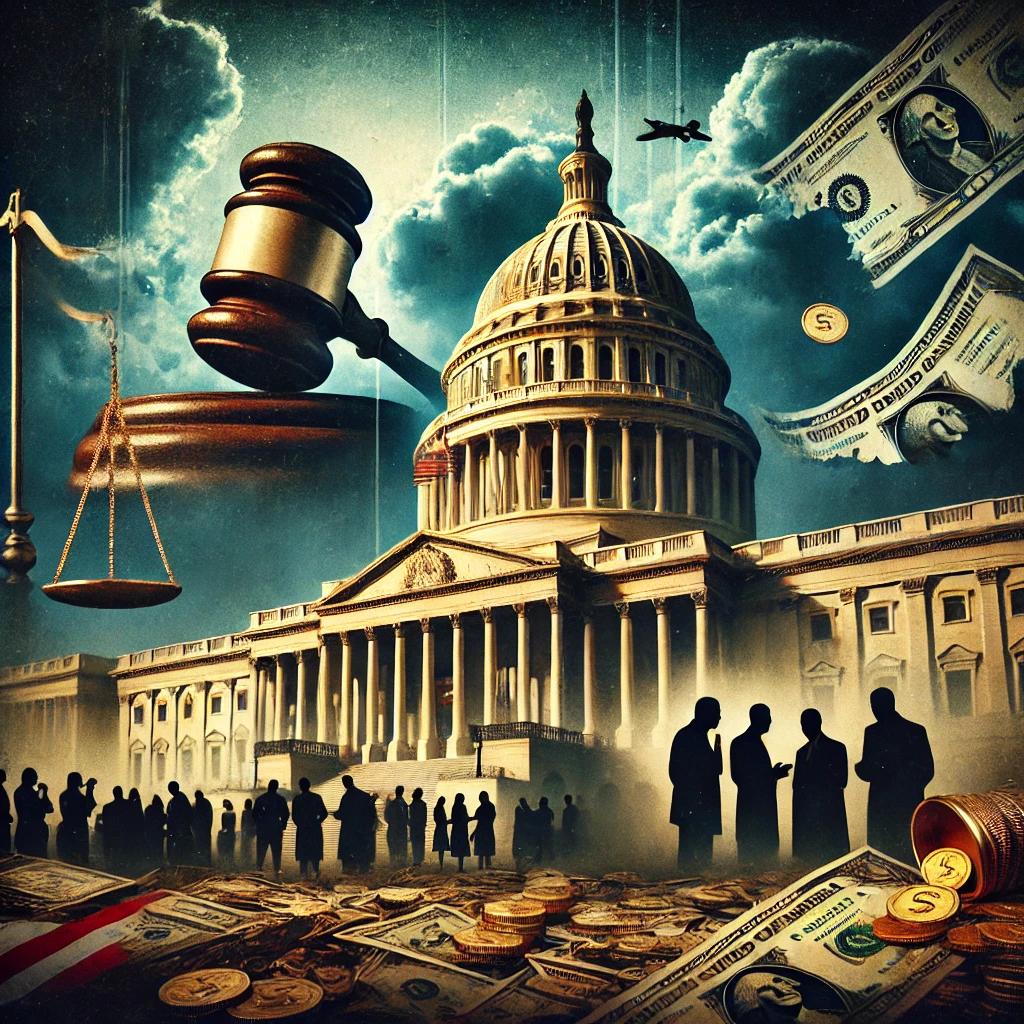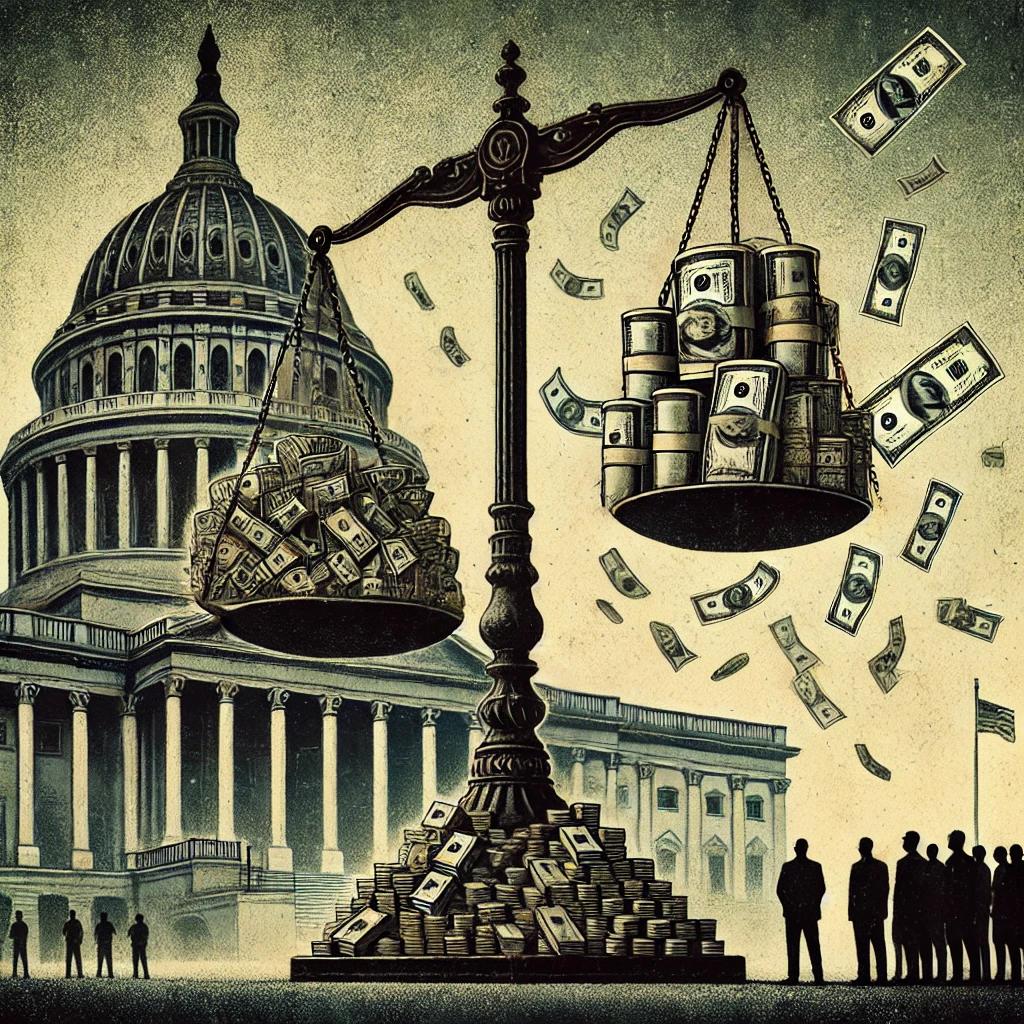The United States once had a political culture where personal integrity and public trust were paramount. In past decades, even minor scandals could spell the end of a politician’s career, signaling a time when accountability mattered deeply to both the electorate and the political elite. Take, for instance, the case of President Richard Nixon. Though Watergate was a serious scandal involving the abuse of power and cover-ups, it was also emblematic of a political climate where wrongdoing was met with bipartisan outrage, ultimately forcing Nixon to resign in disgrace. Will the US get back its political culture?
There used to be a significant pressure on politicians and who failed must have gone. In this article, I explain that Donald Trump is likely the major cause.
Evolution of the US political culture
Fast forward to today, and the contrast is stark: controversies that would have destroyed careers in the past now often seem to fade into the noise of 24-hour news cycles and polarized public opinion.
Consider the downfall of Gary Hart in 1987, whose presidential aspirations collapsed under the weight of allegations of an extramarital affair. A single photograph of Hart with a woman aboard a yacht named “Monkey Business” was enough to end his political career, reflecting a time when personal conduct was inseparable from public trust. Similarly, Senator Thomas Eagleton was forced off the Democratic ticket in 1972 after revelations about his mental health treatments. It was a decision shaped by a political culture that prioritized perceived stability over second chances. President Jimmy Carter’s infamous “lust in his heart” comment during a Playboy interview in 1976 was enough to cause widespread media frenzy, though it didn’t end his political career. Another notable example is Spiro Agnew, Nixon’s vice president, who resigned in 1973 over charges of tax evasion and money laundering, further underscoring the intolerance for ethical breaches in that era.
Will the US get back its political culture? Bill Clinton and affairs
Sexual scandals have also had lasting impacts on political careers. President Bill Clinton’s affair with Monica Lewinsky in the 1990s led to his impeachment by the House of Representatives. Although Clinton remained in office, the scandal dominated public discourse for years, permanently tarnishing his reputation. Senator Bob Packwood was forced to resign in 1995 after multiple allegations of sexual harassment surfaced. This reflects moment when such behavior could not be ignored. Congressman Anthony Weiner’s sexting scandals in 2011 and 2013 ended his political career entirely, highlighting the consequences of personal misconduct even in more recent times.
Presidential pardons, while legal, have often raised eyebrows and shaped perceptions of political ethics. Gerald Ford’s pardon of Richard Nixon in 1974, intended to heal the nation, was widely criticized as an act of political favoritism. More recently, President Trump’s pardons of allies like Michael Flynn and Roger Stone, both convicted of lying or obstructing investigations, drew accusations of undermining accountability and normalizing abuse of power. Such actions reflect a growing trend where legal technicalities overshadow moral responsibility.
Back in history? Donald Trump would have been a dead man in such a political culture

President-elect Donald Trump has faced an unprecedented array of scandals and controversies that would have been career-ending in previous eras. Some his controversies include:
- Two impeachment trials:
- Abuse of power and obstruction of Congress related to pressuring Ukraine to investigate a political rival.
- Role in the January 6th Capitol insurrection.
- Business dealings:
- Allegations of tax evasion.
- Fraudulent valuations of assets.
- Conflicts of interest from refusing to divest from his business empire while in office.
- Civil fraud lawsuit filed by the New York Attorney General, alleging systemic financial misconduct.
- Classified documents:
- Indicted in 2023 for retaining sensitive national security information and obstructing justice after leaving office.
- 2020 election interference:
- False claims of voter fraud and criminal charges in Georgia for election interference.
- Sexual misconduct allegations:
- Accusations from over two dozen women, ranging from harassment to assault.
- Found liable for sexually abusing writer E. Jean Carroll in 2023, with a $5 million damages award.
- Hush money payments:
- Payments to adult film actress Stormy Daniels during the 2016 campaign, leading to a separate indictment.
- Controversial pardons:
- Pardoned allies like Michael Flynn and Roger Stone, who were convicted of lying or obstructing investigations.
Trump’s handling of classified documents after leaving office resulted in a federal indictment in 2023. They were accusing him of retaining sensitive national security information and obstructing justice. Additionally, his role in attempting to overturn the results of the 2020 election through false claims of voter fraud has been the subject of multiple investigations, including criminal charges in Georgia for election interference.
Political culture? Harassment, abuse
Sexual misconduct allegations have also followed Trump throughout his career. Over two dozen women have accused him of various forms of sexual misconduct, ranging from harassment to assault. In 2023, a jury found him liable for sexually abusing writer E. Jean Carroll, awarding her $5 million in damages. Hush money payments to adult film actress Stormy Daniels during the 2016 campaign led to a separate indictment. This raised further questions about accountability.
Scandals and nothing happens
Contrast this with modern examples. The 2016 election alone saw revelations that might have previously derailed campaigns: allegations of sexual misconduct, questionable business dealings, and incendiary rhetoric all dominated headlines. Yet, these controversies did little to sway the hardened partisan lines that define today’s electorate. More recently, former President Donald Trump faced two impeachment trials, multiple allegations of misconduct, and questions about his business dealings, yet he maintained a strong base of support. Similarly, the 2023 revelations about Representative George Santos, who admitted to fabricating large parts of his resume and personal history, have led to media scrutiny but limited immediate consequences within his party. Meanwhile, Supreme Court Justice Clarence Thomas faced questions over undisclosed financial dealings with a billionaire donor, yet calls for accountability remain muted due to the polarized political climate.
This shift raises the question: has the United States’ political culture changed so fundamentally that scandals, once defining moments, no longer hold the same weight?
How did it happen?
The degradation of political culture in the United States did not happen overnight. It is the result of a slow erosion of values, systems, and trust that once held public life together. Examining the root causes reveals a mix of societal, institutional, and technological factors that have driven the decline.
Partisan polarization
The deepening division between political parties is one of the most glaring causes. Polarization has turned politics into a zero-sum game, where compromise is seen as weakness and collaboration with the opposition is viewed as betrayal. Over time, this tribalism has eroded the sense of shared national purpose, reducing accountability as politicians cater only to their base. The result is a fractured political landscape where scandals are excused or ignored based on partisan loyalty.
Media evolution and sensationalism
The media has undergone a seismic shift from a focus on investigative reporting to chasing clicks and views. The rise of 24-hour news channels, partisan outlets, and social media platforms has fueled sensationalism, drowning out meaningful political discourse. Instead of fostering accountability, the media often amplifies scandals for shock value, leading to outrage fatigue among the public. Meanwhile, echo chambers reinforce existing biases, leaving little room for objective evaluation of leaders and their actions.
Decline of civic education
A lack of understanding about the nation’s democratic principles and institutions has contributed to the erosion of political culture. Civic education, once a staple of American schooling, has declined significantly. Without a clear understanding of the responsibilities of elected officials and the mechanisms of government, voters are less equipped to hold leaders accountable. This ignorance creates fertile ground for demagogues and misinformation to thrive.
Normalization of corruption
Over time, political scandals have become so frequent that the public has grown desensitized. Actions that would have ended careers in the past are now seen as par for the course. This normalization of corruption is compounded by the lack of consequences for misconduct. When high-profile figures evade accountability, it sends a message that ethical breaches are acceptable, further degrading trust in the system.
Influence of money in politics

The outsized role of money in American politics has skewed priorities and created an environment where the interests of wealthy donors often outweigh those of ordinary citizens. Campaign financing through super PACs, lobbying, and dark money has fueled the perception that politicians are bought and paid for. This perception undermines trust in the system and fosters cynicism among voters, further eroding political culture.
Social media and disinformation
Social media platforms have revolutionized how people engage with politics, but not always for the better. Algorithms prioritize sensational and divisive content, amplifying disinformation and polarizing rhetoric. The ability to spread falsehoods at lightning speed has undermined trust in institutions and leaders, while reducing the space for thoughtful debate. Social media has also blurred the line between public and private behavior, turning every misstep into a public spectacle.
Weakening institutional norms
Institutional norms that once acted as guardrails for political behavior have weakened over time. The politicization of the judiciary, the erosion of Congressional decorum, and the exploitation of loopholes in governance have all contributed to this decline. Leaders who ignore these norms face few consequences, emboldening others to do the same.
Public cynicism and disengagement
A growing sense of disillusionment has led to widespread cynicism about politics. Many Americans feel that their voices no longer matter and that the system is irreparably broken. This disengagement creates a vicious cycle: fewer people participate in the political process, allowing unethical behavior to go unchecked. Low voter turnout and lack of grassroots activism further weaken the foundation of a healthy democracy.
Cultural shifts in accountability
A cultural shift toward treating politics as entertainment has also played a role. The rise of celebrity politicians and the emphasis on charisma over competence have trivialized political discourse. Scandals are often consumed as spectacles rather than serious breaches of trust, reducing their impact on public opinion.
Will the US get back its political culture? The greatest factor: Donald Trump
Back in the 2016 elections, only a few interest groups backed Donald Trump. When elected, the majority of the opposition group didn’t want him there.
But he made it trough immense number of scandals and destroyed not only politicial norms, but social norms as well.
Now he is backed by nearly the whole establishment and the circus is going on?
Is there a way back to better political culture? Will the super-rich make it? Or people?
Since Americans are indifferent to the state of public affairs, the question is: Does the US get back its political culture from the ones who are the puppet masters?
Definitely, more calm environment is better for them. There will defintely be some effort to regain political culture and detach from political cultures such as the Czech one.
The second question: will the US get back its political culture by citizens? Likely not. Even though tons of Americans have voted for lesser evil, they won’t do the trick by themselves.
They would have to follow the Scandinavian models and put enormous pressure on politicians, a phenomenon barely seen.

Leave a Reply